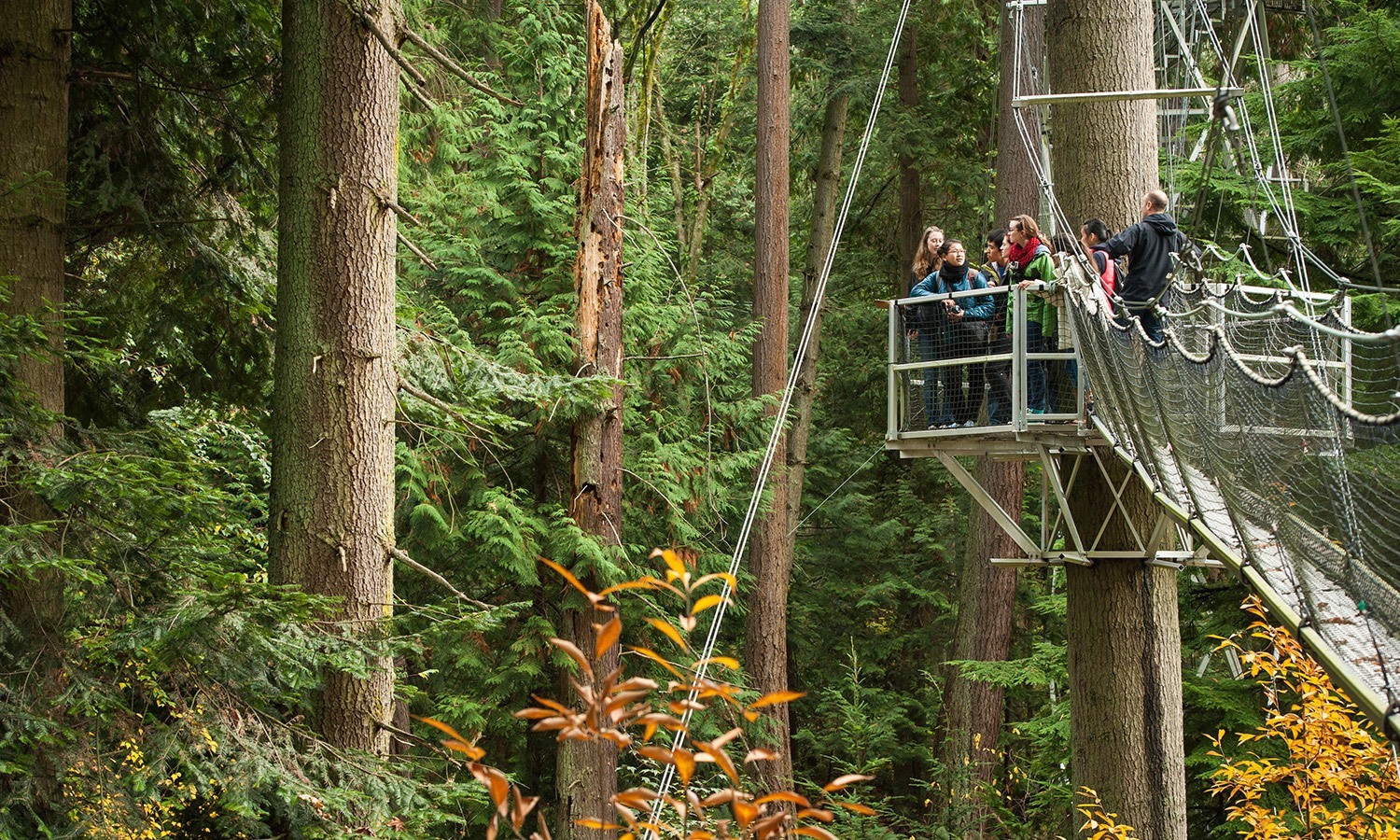The University serves and engages society to enhance economic, social, and cultural well-being.
What can we create together?
Peter Block
UBC exists for the communities it serves: local, provincial, national, and global. An integral part of those communities, the University enters into relationships where decisions about means and ends are made collaboratively, costs and benefits are shared, and learning is reciprocal. Beginning with interest and outreach and moving through engagement and empowerment, UBC recognizes degrees of commitment and nurtures relationships along the full spectrum. With multiple sites and a global reach, UBC dedicates its resources to dialogue and action on issues of public priority. As international acclaim for its community engagement grows, the University honours the time and effort that goes into building respectful community relationships and expands the notion of scholarship to embrace community engagement as both core to the university’s mission and foundational to excellent teaching, learning and research. Community engagement brings the full force of our combined experiences, expertise, and knowledge to bear on the salient questions of our time. Is there anything that, together, we cannot create?
Actions
- Build an environment of support for excellence in community engagement
- Develop and implement a comprehensive Community Engagement Strategy
- Facilitate deliberative public dialogue on issues of public concern and actively invite community participation
- Facilitate engagement of faculty and students in public policy development
Outcomes
- Dialogues on societal issues continue across both campuses through lecture series, seminars and special speakers.
- Symposiums, forums and research venues continue to engage the public in discussion on issues that foster understanding of public policy.
- Community members in the Okanagan have a growing number of opportunities to engage in dialogue on societal issues at public events like the Distinguished Speaker Series, Nobel Nights and the Mini-Med Lecture Series, or to participate in public policy discussions at the campus-wide Water and Biodiversity Forum or the Traditional Medicine and Government Policy Forum.
- Alumni and the public have continued opportunity to discuss key local issues at UBC Dialogues in the Okanagan, Vancouver, the North Shore, Victoria and Hong Kong at 7 events in 2014/15.
- Graduate and Postdoctoral Studies launched the UBC Public Scholars Initiative pilot, to assist PhD students and their supervisors who are working on dissertation projects that extend beyond the boundaries of academic scholarship.
- UBC supports civic participation, for example by providing information and resources to the UBC community and public about the 2015 Metro Vancouver Transportation and Transit Plebiscite to help people make an informed choice and plan to vote.
- Journalists have easier access to UBC faculty and subject matter experts through the UBC Experts Guide and Expert Advisory resources.
Actions
- Strengthen our understanding of community interests in community service learning and sustaining community partnerships through the UBC Learning Exchange and the Centre for Community Engaged Learning
- Increase community use of learning, cultural and outdoor venues on UBC’s campuses and sites
- Develop an effective approach to communications, supporting the full engagement of UBC with its communities
- Collaboratively create and share stories to bring the UBC brand to life in a cohesive, holistic and inspiring manner
- Provide a broad scope of career and personal education programs to support and respond to learner, industry and community needs
Outcomes
- A framework is in place to build a community engagement strategy through ongoing engagement. To date, 500+ responses from workshops, fairs and in-person conversations with students, faculty, staff and community partners help inform UBC’s approach to community engagement.
- UBC Learning Exchange is involved in over 35 active collaborations or partnerships with community organizations and continuously engages 2,000+ community residents in programs. This year, the Learning Exchange marked 15 years of involvement in Vancouver’s Downtown Eastside with 15 events that engaged community members and organizations, students, staff and faculty.
- Continuing professional education programs support lifelong learning including UBC Continuing Studies, continuing professional development programs in the Faculty of Medicine, Faculty of Education and the Sauder School of Business, and programs for community-based learners such as Humanities 101 and Sciences 101.
- Faculty and staff have collaborated to initiate community-based research (CBR) committees and working groups on both campuses to support CBR, build a vibrant CBR community, communicate and gain recognition for the value of engaged research.
- UBC Robson Square hosts the United Way Public Policy Institute for a 5th consecutive year. The 6-month institute brings together 25 leaders from the BC non-profit sector whose organizations want to better understand and influence the public policy process.
- UBC launched a new, more engaging institutional website that receives nearly 6M visits and over 2.5M visitors annually. Social media engagement increased by 50% to 130K followers.
- Okanagan communications are also more engaged with a new UBCO.TV web platform, on-campus digital kiosks with storytelling, and expanded regional television programming with Shaw Cable.
- The Institute for Community Engaged Research (ICER) was established at the Okanagan campus to conduct research that supports diversity, equity, and social justice on local to global issues and have community members, organizations, students, and academics partner as co-researchers.
